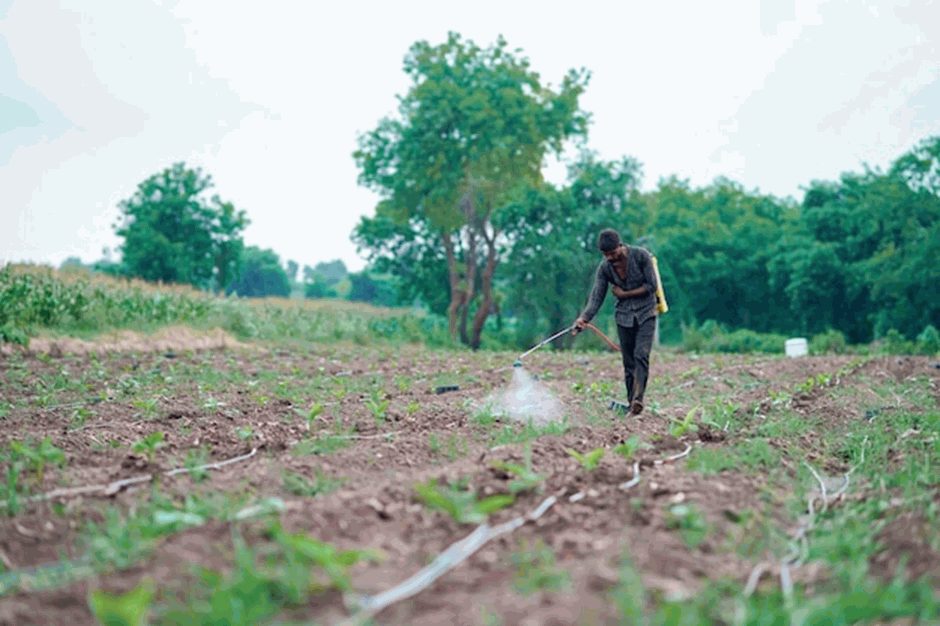
Indian agriculture has a rich history rooted in sustainable practices. In recent times, organic farming has seen a resurgence due to its emphasis on environmental stewardship and healthier produce. One of the most crucial aspects of organic farming is pest management without resorting to synthetic pesticides.
Organic farming is a holistic approach to agriculture that emphasizes sustainability, biodiversity, and natural processes. One of the key challenges faced by organic farmers is pest management. Unlike conventional farming, organic practices prohibit the use of synthetic pesticides. In conventional farming, farmers use chemical pesticides, insecticides and herbicides to manage the pest menace. While highly cost-effective, the use of chemicals has come under scrutiny for the long-term impact they could have on our health. Organic farming eschews the use of chemicals – So, how do organic farmers keep their crops pest-free? Organic farmers use natural methods like fly traps and pesticides made with natural ingredients like neem oil etc.
In this blog post, we will delve more deeply into the ingenious methods that Indian organic farmers employ to control pests naturally.
Companion Planting with Marigolds and Beans:
Companion planting is a cornerstone of Indian organic farming. Marigolds, with their vibrant golden blooms, serve as natural insect repellents. Their roots release substances that deter nematodes, microscopic worms that can damage plant roots. By interplanting marigolds with vulnerable crops like tomatoes, farmers create a protective shield against nematode infestations.
Similarly, beans are excellent companion plants. They are known for fixing nitrogen in the soil, which enhances overall soil health. Additionally, beans provide physical support for climbing crops like peas and tomatoes, while their dense foliage acts as a natural mulch, conserving soil moisture and deterring weed growth.
Neem Oil:
Neem, often referred to as the “Wonder Tree of India,” plays a pivotal role in organic pest control. Neem oil, derived from neem seeds, is a powerful natural insecticide. It disrupts the feeding and reproductive cycles of pests, making it a highly effective solution. Neem oil is widely used in India for a range of crops, including fruits, vegetables, and spices.
Biological Control through Predators:
Indian organic farmers harness the power of nature’s own pest controllers. Ladybugs, lacewings, and predatory beetles are introduced to the fields to feed on harmful insects. In addition to these, spiders and frogs are encouraged to thrive, providing a natural balance in the ecosystem.
Use of Cow-Based Formulations:
Cow dung and urine have been integral components of traditional Indian agriculture for centuries. Organic farmers prepare natural concoctions like “Panchagavya” and “Jeevamrutha” using cow-based inputs. These formulations not only enhance soil fertility but also bolster plant immunity, making them more resilient to pests and diseases.
Crop Rotation and Polyculture:
Indian organic farmers practice crop rotation, a method where different crops are grown in succession on the same land. This disrupts the life cycles of pests, preventing them from establishing a permanent presence. Additionally, polyculture, or growing a variety of crops together, makes it harder for pests to target a specific plant species.
Bio-pesticides and Plant Extracts:
Indian organic farming embraces the use of bio-pesticides derived from plants like neem, custard apple, and garlic. These natural extracts are prepared and used as deterrents against pests. They are safe for the environment, humans, and beneficial insects.
Indian organic farmers demonstrate a profound understanding of the intricate relationships within ecosystems. Through these ingenious methods, they effectively manage pests while upholding the principles of sustainability. By adopting organic practices, farmers in India are not only producing healthier food but also contributing to the preservation of the environment for future generations. At Happy Harvest Farms, we work with a diverse network of organic farms and farmers. Our farmers follow strict organic farming principles and do not use any chemical pesticides or chemical fertilisers. They focus on natural pesticides and natural pest elimination methods. This ensures what you get is 100% free of chemicals, safe and truly organic!